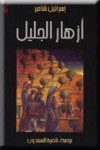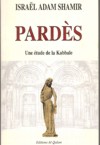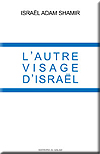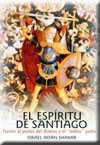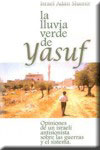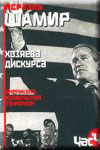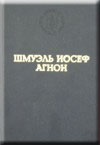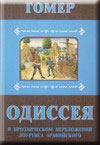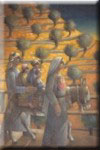Venezuela: Socialism, Democracy and the Re-Election of President Chavez
James Petras
January 8, 2009
On February 15, 2009, Venezuelan voters will go to the polls in order to vote on a constitutional referendum, which would allow for the indefinite re-election of the President. The vote on the constitutional amendment has raised fundamental questions about the relation between electoral politics and democracy. The proposed constitutional change, and specifically the constitutional amendment allowing for the indefinite re-election of the President requires an examination of two basic concepts: electoral systems and democracy. The distinction between these two concepts dominates the political conflict between the supporters (pro-Chavez) and opponents (anti-Chavez) of the amendment.
Electoral Systems and Democracy: Substance and Structure
A democratic political system involves at a minimum: (1) Free and equal competition for political office and (2) access to the means of communication and (3) competing ideas and freedom to act without physical or psychological coercion. Procedures and conditions leading up to elections, which violate these norms, are incompatible with the notion of democracy. The most obvious case is Colombia whose state terror against opposition groups is practiced in every recent election. Electoral processes are necessary but not sufficient conditions to define a democratic system. In other words there are numerous examples where electoral processes are embedded in institutional structures (oligarchy-controll ed mass media) and preceded by political conditions (threats, patronage and corruption), which violate the basic norms of democracy. In other words, we can have non-democratic (authoritarian) as well as democratic electoral systems.
The most common authoritarian features of electoral systems, which deny its democratic character include:
- Restricted access to the mass media because of monopoly ownership denying freedom of expression and undermining equality of competition.
- Unlimited spending on electoral campaigns favoring the moneyed classes capacity to monopolize electoral campaign spending and biasing the competition to favor candidates who amass the greatest funds.
- State violence and repression of opposition parties, candidates and electoral constituencies during the electoral campaign. This nullifies any claims to a legitimate outcome based on ‘an honest vote count’ on election day.
- Large scale financing by external foreign powers of the internal electoral process, drastically undermining internal competition and distorting free and equal competition. Important organizational and financial links between foreign multinational corporations, intelligence agencies and foundations to domestic parties, personalities and NGOs introduce non-democratic, non-elected actors.
Taking account of these possible structural constraints, we see that there are numerous non-democratic variants of electoral systems. These include:
- Death-squad electoral systems in which long-term, large-scale state violence against dissident civil society organizations (trade unions, peasant movements and human rights groups) is practiced prior to election day. Colombia is the prime example in which, over the past decade, the military and paramilitary groups murdered over 2500 trade unionists and 4 million, mostly peasants, were driven from their homes and communities.
- Imperial-collaborat or electoral regimes in which there is a mass infusion of political financing by European/US state entities to incumbent regimes and parties to counter growing mass popular opposition. Nicaragua, El Salvador and Dominican Republic are prime examples of electoral regimes, which have experienced ‘externally controlled political processes’.
- Oligarchic electoral systems are the most common type of authoritarian systems, many emerging from the crisis of military dictatorship of the 1970-80’s. They resulted from a political pact between economic oligarchs, political party elites and the military. The usual pattern is a two-party or modified three-party political system or coalition where the parties compete for the vote in order to represent competing ruling class interests. Mexico, Chile, Uruguay and Brazil represent this type of oligarchic electoral system.
Electoral Systems in Flux
Authoritarian electoral systems are not static: Old oligarchic parties collapse and new ones emerge. Some oligarchic parties begin by adopting populist postures to gain office and then pursue and deepen oligarchic ties, co-opting and corrupting the emerging insurgent social leaders and aborting the democratic process. Authoritarian electoral systems are subject to the pressure of non-electoral parties and movements to modify or reform repressive practices and the privileging of economic inequalities.
Equally significant in challenging oligarchic electoral systems, major economic crises and political uprisings can displace oligarchic regimes and lead to the emergence of plebian-based democratic movements. Regimes can emerge, which attempt to ‘mediate’ or ‘balance’ between the mass democratic movements and oligarchic ruling classes. In recent years, mass popular movements and uprisings have led to the overthrow of oligarchic electoral regimes. Such events have taken place in Bolivia, Argentina and Ecuador. In addition, established oligarchic electoral regimes have been defeated because of mass mobilizations in Venezuela, Brazil, Uruguay and Paraguay. As a result, some of the authoritarian political constraints have been temporarily reformed, while the economic ruling classes remain intact. The inequalities in economic resources and access to the mass media remain in place or are, at best, merely modified.
In other words, in recent years a process of democratizing the electoral system has been underway. However this process is not linear, homogeneous or irreversible. Promising democratic beginnings via mass mobilizations have been cut short or even reversed once the democratic ‘reformers’ take office. Democratic reformers frequently retain the repressive state apparatus, limiting changes in authoritarian structures and repressive practices. In summary, electoral politics, and not democracy, resulted from the transition between military to civilian rule.
Over the past eight years the democratization of electoral politics advanced with the breakdown of the neo-liberal political-economic system, the rise of popular mass movements and the defeat of abortive oligarchic uprisings designed to restore strict authorization rule.
Venezuela represents the most exemplary case of a sustained effort to democratize electoral politics. Venezuela, during the Chavez Presidency (1999-2008), represents a unique case of an effort to combine the democratization of electoral politics with the socialization of the economy, deepening and extending democratic politics into the sphere of the economy.
Venezuela: The Transition to Democracy
Venezuela is the one country in Latin America that best exemplifies the transition from oligarchic electoral politics to democracy. During the preceding 40 years (1959-1998) the country was ruled by a two-party elite (Democratic Action and Social Christian – COPEI), which competed to represent the petrol-rentier oligarchy, powerful importers, and the real estate-financial speculative elite. The two parties were dominated by a predator political class, which pillaged the public treasury. The economic collapse during the infamous decade of 1989-1998 resulted in a 10-fold increase in poverty, which led to the mass uprising and state massacre of 1989 known as the ‘Caracazo’. This, in turn, paved the way for the election of President Chavez in 1999. President Chavez took the first steps toward reforming the authoritarian electoral system through a referendum and subsequent new constitution. Chavez’s opposition to Washington’s imperial ‘War on Terror’ was part of a foreign policy designed to end US tutelage and affirm Venezuela’s national sovereignty. The colonial oligarchy sought to regain power and return the country to its authoritarian past via a US-backed civil-military coup in April 2002. The coup was defeated. Chavez was restored to power by a popular uprising backed by loyalist military officials. The President dismissed the coup participants within the government and arrested their civilian collaborators. As a result, authoritarian organizations in civil society and the state were weakened. A subsequent lockout was led by an elite group of petroleum executives who sought to sabotage the economy and overthrow the elected president. They were defeated by a joint effort of the Government and the petrol workers. This victory further weakened the colonial oligarchs in the strategic oil industry. The defeat of the strategic pillars of authoritarian electoral power led to the effective nationalization of the petroleum industry. Through these victories President Chavez strengthened the process of democratization of the state and civil society.
Under the leadership of President Chavez the petroleum industry became more responsive to the social needs of the majority of its citizens. Under democratic leadership the PDVSA (the national oil company) financed a vast number of citizen educational programs enhancing democracy. With a powerful electoral mandate after his re-election and vast increases in public revenues through public ownership and high world oil prices, President Chavez pursued policies, which encouraged citizen participation through elected community councils providing a new dimension to the process of democratization. Democratizing the electoral process and dismantling the oligarchic electoral system took several directions:
- The encouragement, promotion and financing of a vast array of neighborhood cooperatives, peasant organizations and trade unions, which increased the power and political influence of the working class and informal workers. Freed from upper class patronage and control, the new social organizations equalized the effective role of the poor in the political process. Greater freedom and equality provided essential ingredients in the strengthening of democratic politics.
- The weakening of the linkages between the oligarchic political and economic elites and the military/Pentagon diminished the power of the authoritarian state over civil society. Electoral outcomes were less subject to the intervention by undemocratic imperial agencies. Conversely the new mass organizations increased the importance of internal democratic processes. While the US and EU continued to channel funds into opposition oligarchic NGOs this is countered by domestic mass social movements and social programs funded by these democratically elected public institutions.
- Publicly financed television stations and the proliferation of popularly controlled community radio stations have broken the oligarchy’s media monopoly. The result is more pluralistic, balanced and diverse sources of information. Better-informed citizens can make more rational political decisions.
- Freedom of speech has been greatly enhanced by the proliferation of political forums not controlled by the oligarchy. More diverse opinion leaders have greater access to more organized groups and media outlets than ever before.
- Civil society has been enriched by the growth of multiple trade unions and community-based groups. Competing voter lists in social movements have greatly increased internal democracy in civil society organizations. Electoral competition within civil society has been greatly enhanced. Civil society has been strengthened in relation to the state. The democratization of civil society movements has strengthened public debate and the electoral processes.
Continuing Obstacles to Democratization
In contrast to past oligarchic electoral regimes, Venezuela has moved decisively toward the consolidation of its democratic transition.
Nevertheless, numerous and serious authoritarian impediments to the full consolidation of democracy still exist. Principally, they are found in the continuation of vast concentrations of oligarchic wealth and ownership of strategic banking, mass media, real estate, agricultural lands, distribution networks and the manufacturing sectors. Concentrated private economic ownership and wealth results in vast social inequalities, which translate into the continuation of political inequalities in the form of unequal competition for political influence, despite the government’s and civil society’s countervailing power.
To consummate and complete the process of democratization requires the equalization of socio-economic conditions in society and the introduction of democratic reforms in the state and within publicly owned enterprises.
The full realization of democracy requires the implementation of a socialist transformation in which elections take place in the work place and through a program of re-distribution of wealth, land and financial resources.
Democratic Socialism and the Re-Election Amendment
On February 15, 2009 Venezuelans will vote on a constitutional amendment, which will permit the electorate to re-elect an incumbent President without term limits. In the past, many democratic analysts were opposed to ‘presidential re-election’ for several reasons. According to their critique: 1. Re-election was a method used by dictators to provide pseudo-legitimacy to regimes, which repressed democratic freedoms of speech, assembly, and access to mass media. 2. Re-election allowed incumbent regimes to utilize the state apparatus to engage in fraud and violence, perpetuating authoritarian oligarchic rule and undermining free and equal competition. 3. Re-election allowed the incumbent president to monopolize the mass media and deny the opposition equal access to campaign resources. 4. Repeatedly re-elected presidents concentrated and accumulated state power while weakening popular social organizations in civil society and strengthening the links between the state and the oligarchic civic and economic organizations.
These were legitimate criticisms of presidential re-election in past historical contexts, but are not applicable to the case of Venezuela today.
The historical record of the past decade and the present realities in Venezuela today demonstrate that democratic principles and practices have deepened and extended following each election and re-election of Hugo Chavez. For example: 1. The mass media are much more diverse; access is more equal and there is a greater variety of competing socio-economic paradigms under debate. 2. Civil society contains a greater number of free and independent competing and organized social classes than ever in the history of Venezuela. Between 1999-2009 competing neighborhood groups with diverse social perspectives have flourished. 3. Electoral campaigns and procedures are less subject state corruption, intervention and violent manipulation than ever before. 4. Citizen participation and defense of democratic freedoms was never more widespread and intense as was witnessed by the massive popular mobilization defeating the US-oligarchy- military coup of April 2002, and the restoration of the elected President (Chavez), the Congress and the Venezuelan constitution. 5. The nationalization of foreign and oligarchy controlled strategic enterprises has made key economic enterprises subject to legislative and executive oversight by elected public representatives. 6. The re-election of President Chavez has resulted in politics which lower socio-economic inequalities, increased social expenditures for the poor, the working class and peasantry thus increasing their stake in democratic institutions, their interest in electoral campaigns and provided them with greater time and resources to participate in social and political organizations.
Contrary to previous historical experiences, in Venezuela under President Chavez, there is a positive correlation between his re-election and the extension and deepening of democratic institutions and practices as well as a richer civic culture. In the 40 years prior to the Chavez presidency (1959-1998) during which re-election was prohibited, the alternating Presidents perpetuated a profoundly authoritarian oligarchic electoral system which effectively disenfranchised the mass of low-income voters, offering few choices and subjecting them to a corrupt party patronage system.
The key is to view re-election versus single-term presidencies in their historical context and in terms of the political practices and pragmatic consequences of each. For example, the ‘re-election’ of Alvaro Uribe means the perpetuation of death squads and forced dispossession of millions of peasants. The limits on re-election of presidents in Mexico has not altered highly authoritarian rule, vast inequalities, foreign control of all strategic sectors of the economy and the power of the capitalist class to replace one oligarch for another.
Approval of the constitutional amendment allowing for the re-election of President Chavez is essential for the continuation of the democratic process and social welfare of Venezuelans. Because of President Chavez’ audacious and courageous defense of world peace and humanitarian justice, his re-election is especially important in the face of imperial wars and genocidal colonial wars in Iraq, Afghanistan, Palestine and elsewhere.
Approval of the amendment will result in the continuation of vital socio-economic reforms, which provide free education, health and subsidized food for the vast majority of Venezuelans.
Particularly in a time of worldwide capitalist recession/depressio n, only a democratic-socialis t government will give highest priority to protecting social welfare programs over and against bailing out bankers, industrialists and export elites. All alternative capitalist candidates in Venezuela would follow the practice of the North American, European and Asian rulers of cutting social programs to save the ruling class.
The re-election of President Chavez would facilitate the democratization of the economy through nationalization and socialization. The defeat of the re-election amendment would abort and reverse the process leading to the privatization of strategic economic sectors, which would lead to foreign capitalists arbitrarily making all key economic decisions. The privatization of the mass media would lead to oligarchic monopolies, eliminating the diversity of political views.
Conclusions
With the onset of the world recession/depressio n, the collapse of the neo-liberal model and the incapacity of capitalist economists to offer any viable alternative, there is all the more reason to re-elect President Chavez who backs a socialist, publicly directed and controlled economy, which protects and promotes the domestic market and productive system.
At a time of Israel’s genocidal war, backed by the US and at a time when newly-elected Obama doubles military spending and troops for wars in Afghanistan, Iraq and possibly Iran, the world looks to President Chavez as the world’s foremost humanitarian leader, the outstanding defender of freedom, peace and self-determination. The approval of the re-election amendment is not only a vote for Venezuelan democracy but equally a vote in defense of the billions of oppressed Third World people who regard President Chavez as their principled leader: The only President who refuses to support Bush-Obama’s imperial ‘war on terror’. The only President who ousted Israel’s ambassador in righteous repudiation of Israel’s genocidal assault on the people of Gaza.
Much more is at stake on February 15, 2009 than a constitutional amendment and the re-election of a president. With the outcome rides the future of democracy and socialism in Venezuela and the hopes and aspirations of hundreds of millions who look to President Chavez as an example in their revolutionary struggle to overthrow militarists and depression-racked capitalist states.



